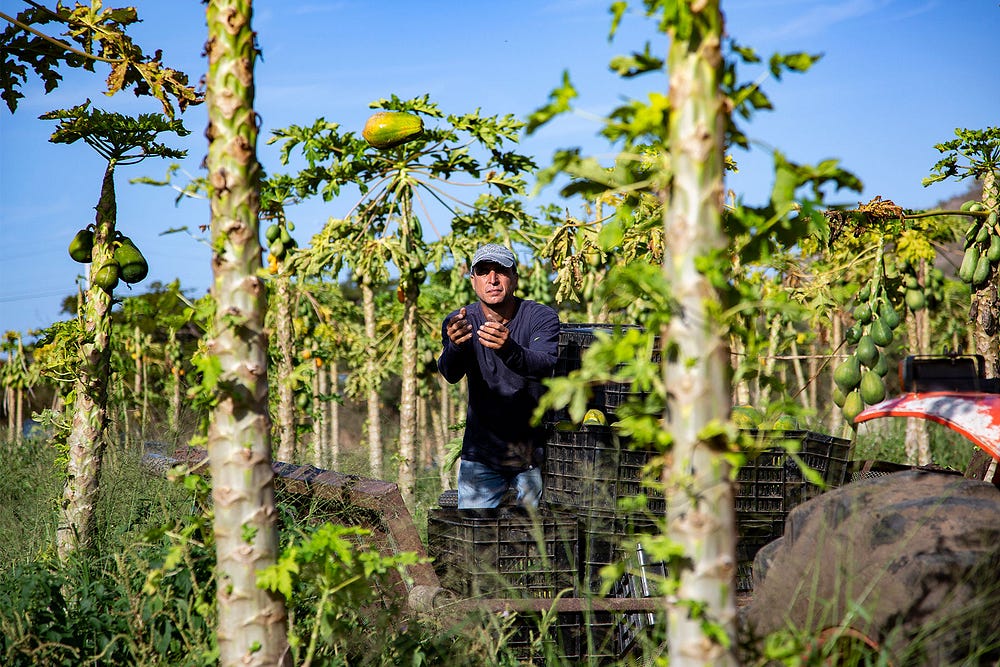Member-only story
‘I Represent the Puerto Rican People Who Do Not Have Food’
Meet the farmers who are reclaiming food sovereignty on the island

Row by row, Adrián Jordán García and his three workers move through the neatly planted papaya forest. The day is hot and dry, and everything is tinged with the yellow of sunny, dusty landscapes. Some workers wear long sleeves and gloves to protect their bare skin from the caustic papaya sap; others are less sensitive to it. They pop fruit off the trees with their hands, or with long tubes to access the fruit that is too high to reach.
To the untrained eye, it is difficult to see why they select some fruits and leave others behind. As soon as they’ve collected an armload, the workers whistle to García, who is stationed up on the tractor bed. They throw him the fruits, which he catches like footballs and inspects one last time before gently tossing them into the bins. Later that morning, they will be sorted and packed into waxed cardboard produce boxes, which a truck will take to a local Walmart, where they will be sold.
García grows a handful of crops to sell to the larger grocery chains on the island: papayas, watermelons, eggplants, and cucumbers have been some of the most lucrative for him. He used to grow okra as well, but it’s a crop that takes more skill to harvest properly, and…

